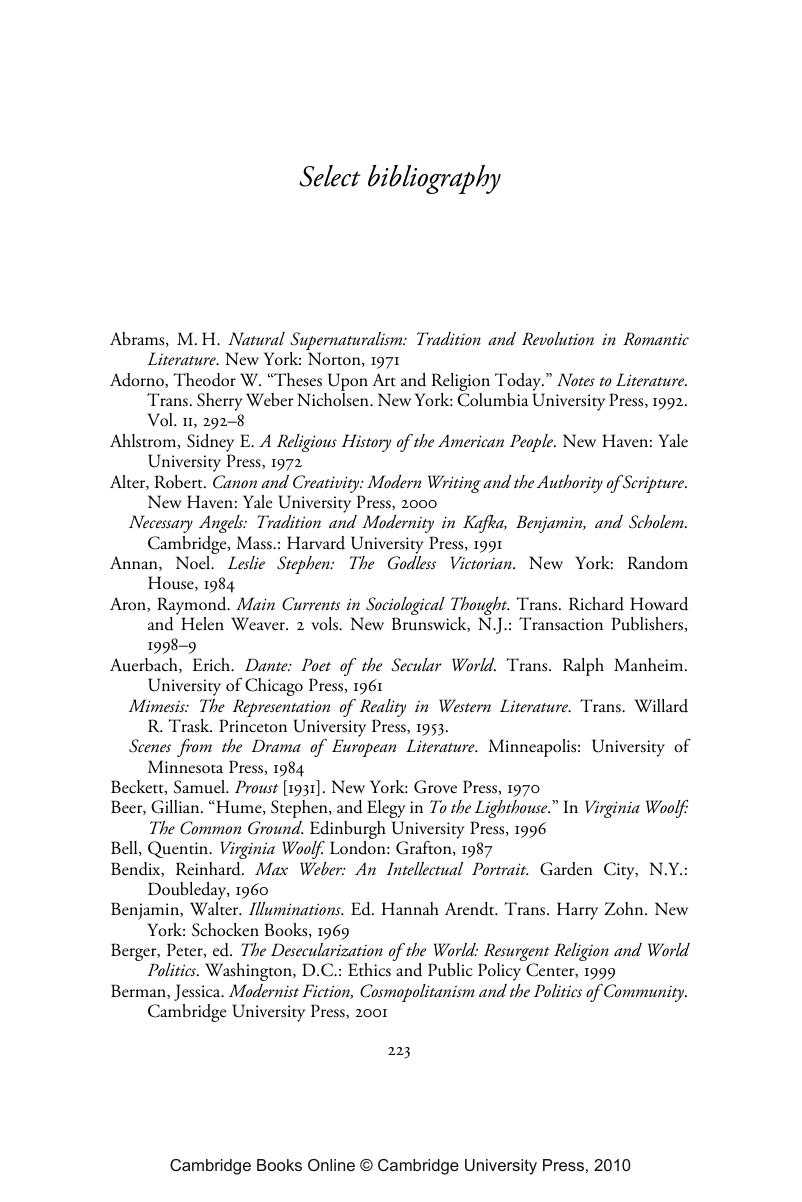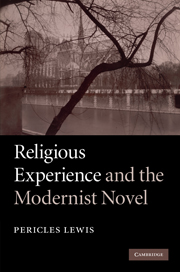Book contents
- Frontmatter
- Contents
- Acknowledgments
- 1 Churchgoing
- 2 God's afterlife
- 3 Henry James and the varieties of religious experience
- 4 Marcel Proust and the elementary forms of religious life
- 5 Franz Kafka and the hermeneutics of suspicion
- 6 Virginia Woolf and the disenchantment of the world
- 7 The burial of the dead
- Notes
- Select bibliography
- Index
- References
Select bibliography
Published online by Cambridge University Press: 26 February 2010
- Frontmatter
- Contents
- Acknowledgments
- 1 Churchgoing
- 2 God's afterlife
- 3 Henry James and the varieties of religious experience
- 4 Marcel Proust and the elementary forms of religious life
- 5 Franz Kafka and the hermeneutics of suspicion
- 6 Virginia Woolf and the disenchantment of the world
- 7 The burial of the dead
- Notes
- Select bibliography
- Index
- References
Summary

- Type
- Chapter
- Information
- Religious Experience and the Modernist Novel , pp. 223 - 231Publisher: Cambridge University PressPrint publication year: 2010



